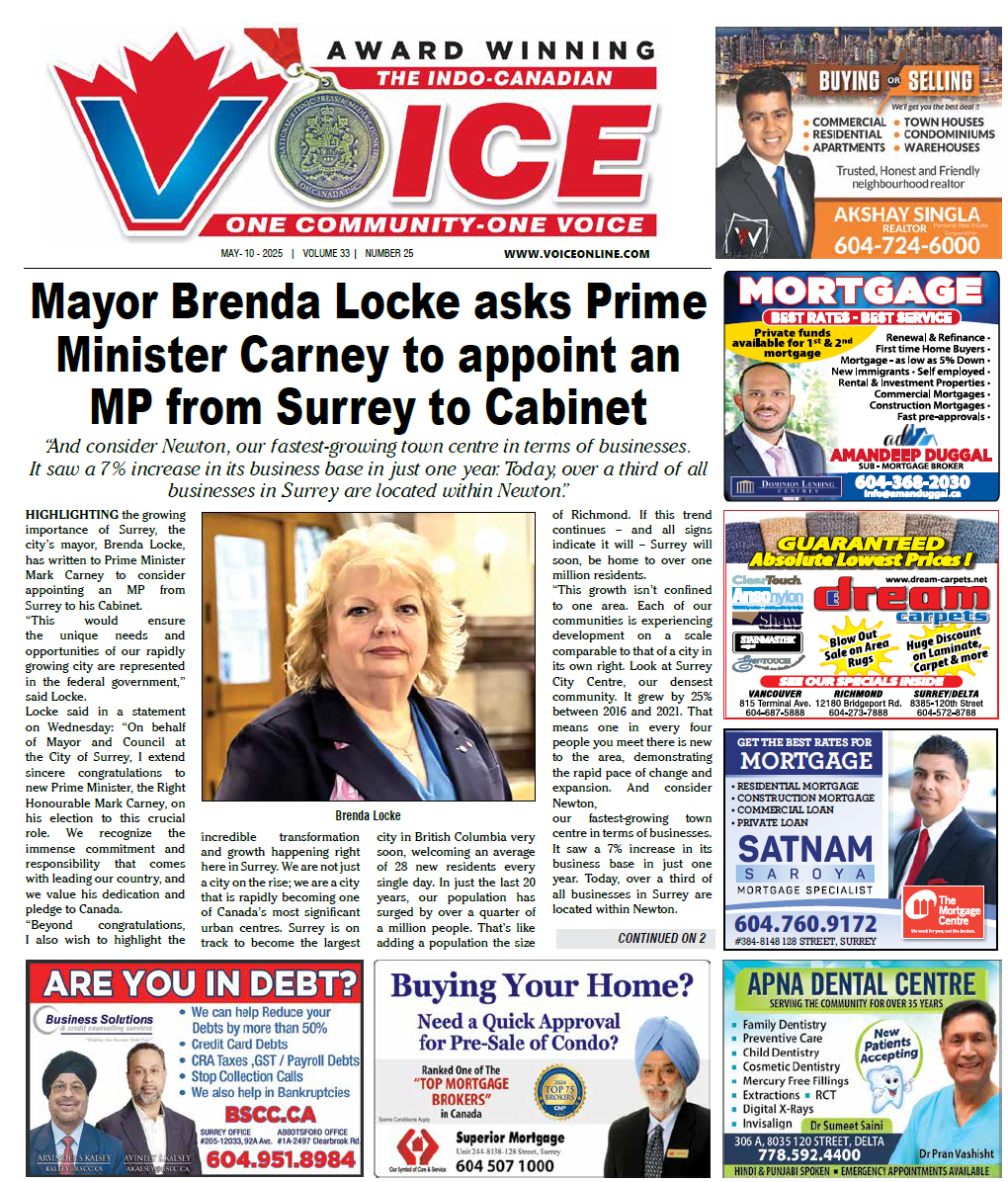THE Metro Vancouver Board completed its Services and Cost Efficiencies Review on Wednesday, directing the organization to apply $364 million in operating budget savings to its 2026 Budget and 2026-2030 Five-Year Financial Plan, reducing the projected 2026 household rate increase by half for 2026. The full plan will be developed over the year and brought to the Board for approval in October.
“Over the past few months, Metro Vancouver has done a detailed analysis of our operating budget and more than 300 infrastructure projects, identifying significant opportunities to reduce spending,” said Mike Hurley, Chair of the Metro Vancouver Board of Directors. “This carefully balanced approach demonstrates our commitment to affordability for residents as we meet the needs of a growing population and deliver the services our region depends on.”
Previous projections for 2026 rates were a 5 per cent increase to the average household rate over 2025, which will now be reduced to a 2.5 per cent increase. The increase for 2027 will be reduced from 5 per cent to 3 per cent.
Savings for the 2026 Budget and 2026-2030 Five-Year Financial Plan were found through:
- Adjusting timing of when projects will be delivered, based on deliverability and market conditions
- Reductions in capital infrastructure spending across multiple programs
- Reduced consulting services, business support costs, and scope across departments
- Adjusted workplans and focused on resource optimization and efficiency strategies
- Reducing debt servicing costs as a result of $1.1 billion in adjustments to infrastructure spending
Advisors from the accounting firm KPMG validated Metro Vancouver’s approach, confirming that the framework and methodology align with leading industry practices for identifying operational cost savings.
“By finding ways to optimize resources and adjust to our current realities, we’re addressing the cost concerns expressed by residents while maintaining the long-term sustainability of our operations,” said Metro Vancouver Board Vice Chair John McEwen. “It’s like maintaining a home on a budget. We’re prioritizing essential repairs, phasing improvements over time rather than renovating everything at once, and doing more work in-house instead of relying on contractors.”
In 2025, households pay on average $875 for all of Metro Vancouver’s region-wide services, which include: drinking water, wastewater management, solid waste management, air quality regulation, regional parks, regional planning, and Invest Vancouver. Based on the new projections for 2026, households will pay on average $896, down $22 from the previous projections.
Metro Vancouver will now enter its regular budgeting process and the Board will consider and vote on the final proposed 2026 Budget and 2026-2030 Five-Year Financial Plan in October.










